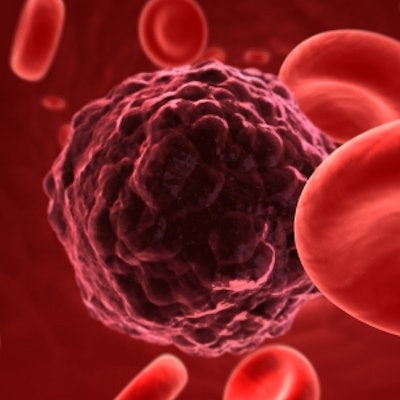
A drug intended to reduce the severity and incidence of radiation- and chemotherapy-induced oral mucositis showed promising results in a recent clinical trial. Patients treated with the drug had reduced duration, incidence, and severity of severe oral mucositis compared with those who received a placebo.
In 2016, the U.S. Food and Drug Administration granted Galera Therapeutics fast-track status to test its drug, known as GC4419, in a double-blind, randomized clinical trial. The researchers published their trial results in the December issue of the Journal of Clinical Oncology (December 2019, Vol. 37:34, pp. 3256-3265).
"Approximately 70% of patients receiving chemoradiotherapy for head and neck cancer develop severe oral mucositis, and there is currently no drug approved to prevent or treat it," Mel Sorensen, MD, president and CEO of Galera, stated in a press release. "These positive phase IIb data have been presented at multiple scientific meetings, which reinforces both the strength of the results and the urgency for a treatment to address this pervasive and unmet need."
Weeks of improvement
“Approximately 70% of patients receiving chemoradiotherapy for head and neck cancer develop severe oral mucositis.”
In healthy oral mucosa cells, enzymes break down harmful reactive oxygen molecules, including superoxide. But when a patient with head and neck cancer undergoes chemotherapy and radiation, the treatment releases more superoxide than the enzymes can handle. As a result, oral mucosa cells can die, atrophy, or ulcerate, leading to oral mucositis.
While most treatments for oral mucositis focus on symptom management, GC4419 mimics cells' natural enzymes by quickly converting superoxide into hydrogen peroxide and oxygen. Previous research has suggested this mechanism might help prevent severe oral mucositis in patients with head and neck cancer, so lead study author Carryn Anderson, MD, and colleagues put GC4419 to the test in a study funded by Galera Therapeutics.
For the trial, the researchers enrolled more than 200 patients who were scheduled to undergo seven weeks of radiation and chemotherapy to treat locally advanced squamous cell head and neck cancer. During their treatment, patients received 30 mg of GC4419, 90 mg of GC4419, or a placebo.
The 90-mg dose of GC4419 reduced the average duration of severe oral mucositis by more than two and a half weeks. It also reduced severe oral mucositis incidence and severity by 34% and 47%, respectively.

"[Severe oral mucositis] results in the placebo arm were consistent with historical data, whereas results for 90 mg of GC4419 seem clinically significant and favorable in the context of historical data," the authors wrote. "Results for the 30-mg arm were intermediate between those for the 90-mg and placebo arms, consistent with a dose-response relationship for efficacy."
The adverse event rates also were comparable for all three groups of patients, with blood-related toxicities being the most prominent type of toxicity. However, 15% of patients in the 90-mg intervention group experienced a temporary severe drop in blood potassium levels, compared with 11% of patients in the 30-mg group and 6% in the placebo group.
"Toxicity attributable specifically to GC4419 was modest and transient, resolved with cessation or dose reduction of GC4419 infusion, and did not compromise treatment with GC4419 or chemoradiation," the authors wrote.
The findings suggest that GC4419 has the potential to help patients undergoing chemotherapy and radiation for head and neck cancer, but the drug isn't ready for the market yet. It's currently being tested in a phase III clinical trial to confirm whether it can really help prevent severe oral mucositis.
"Our results demonstrate the potential for GC4419, an agent intended to interrupt [severe oral mucositis] pathogenesis, to reduce the duration, incidence, and severity of radiation-induced [severe oral mucositis] and thereby become an important new tool in the management of this adverse event in at-risk patients," the authors concluded.



















